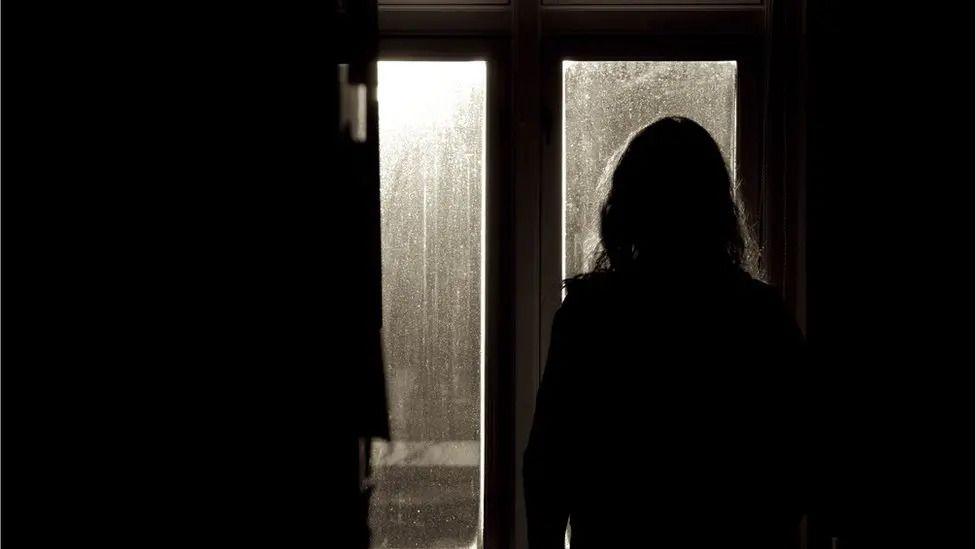Modern slavery victim felt 'trapped and terrified'

Rachel (not pictured) told the BBC she was "trapped"
- Published
A former care worker who was a victim of modern slavery has told the BBC how the the ordeal left her "terrified" after being treated "like trash".
Rachel, which is not her real name, had been tempted from her home country in East Africa to the UK by the government's skilled care worker visa.
She said she arrived in Oxfordshire with a lot of hope, but soon realised she had been recruited by a people trafficker.
The government said it would hire 200 new staff to make faster decisions about slavery cases, after a BBC investigation found some victims were waiting up to four years.
Once in the UK, Rachel was told she’d have to pay for her new job, as well as for an immigration skills charge and a certificate of sponsorship - both of which should be the responsibility of the employer.
"I was being treated like trash, and would be abused verbally and physically," she said.
"I had no value when I reached the UK, none at all."
She said she was regularly threatened by her boss that her work permit would be taken, and she would be deported back to her home country.
"I was working long hours, couldn't get any rest and my boss had taken my work permit, so I was just trapped in one place and I couldn't have means of going anywhere," she said.
"That is when I got that fatigue of everything - I was very terrified."
'Slavery doesn't discriminate'
After roughly eight months in the UK, Rachel suffered a panic attack at work, which paramedics responded to.
It was there that she flagged her situation to those caring for her.
"They told me to call the police, but still I had that fear of calling them, so instead I got in contact with with a charity," she said.
The charity Anti-Slavery Initiative Oxford, along with the relevant authorities, all helped Rachel escape from her situation, and she has since go on to start a new life in a different part of the UK.
"Things are very good - my life changed after I was taken care of and was provided many things - that is when I realised that I have a life and it's raised my self esteem," she added.
Nicola Bell, Oxfordshire’s anti-slavery co-ordinator, told the BBC: "Modern slavery doesn't discriminate against how old you are, where you're from or what job you've got."
Ms Bell's team identified 71 Potential victims of modern slavery in the county between July and September this year, with the most common forms being forced labour and criminal exploitation.
"What we see in the news is probably only half of it and we need to look for the indicators, rather than the people, because anybody can be exploited and anybody can be an exploiter," she said.
Details of organisations offering support for victims of modern slavery are available at bbc.co.uk/actionline
Get in touch
Do you have a story BBC Oxfordshire should cover?
You can follow BBC Oxfordshire on Facebook, external, X (Twitter), external, or Instagram, external.